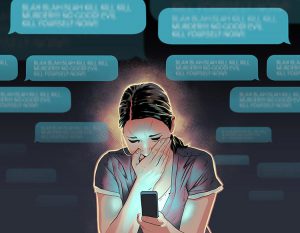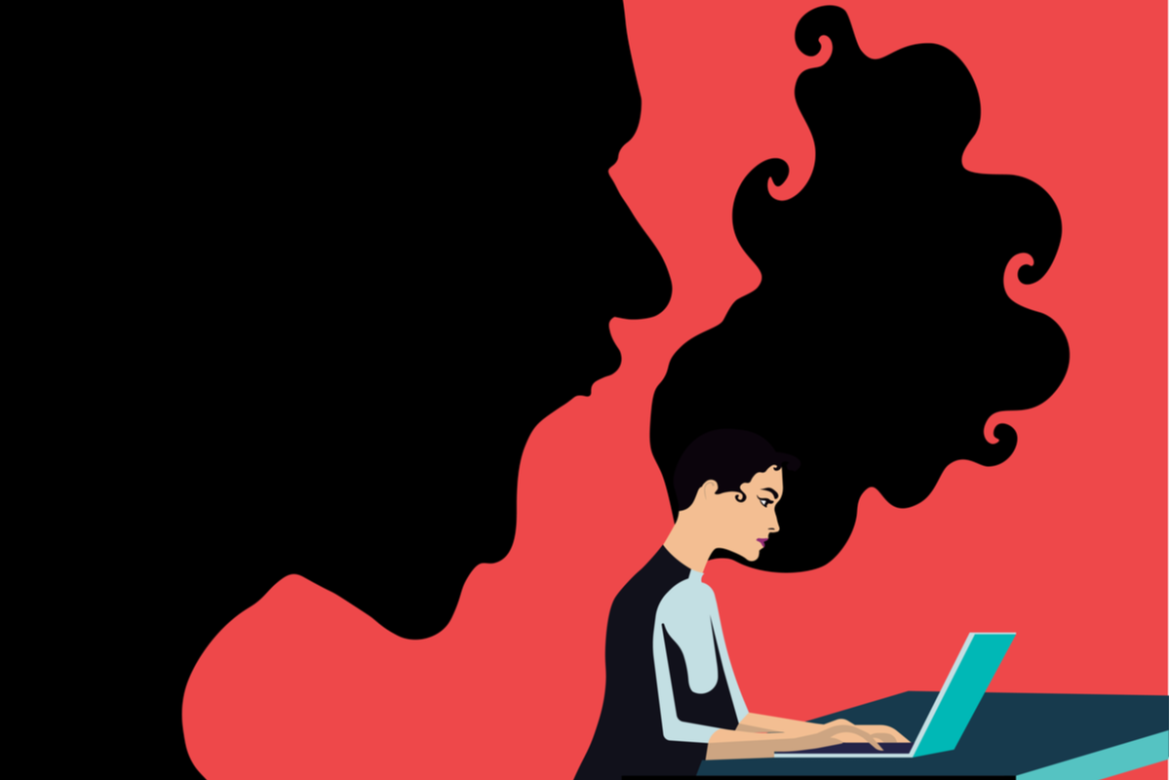MEDIA/ Women journalists around the world are insulted, threatened, and flooded with hate. We found a report from “The international reporting project Story Killers”; that shines a light on the systematic harassment that women reporters face on the internet. We spoke with some of those who have been affected.
“We’ll find you and we’ll kill you.” Nastia Zhvik found this sentence on the Russian social network VKontakte. Another user wrote: “We’re going to stab you and bury you.” The posts were meant for her. As a warning.
The problem isn’t just limited to violence in the digital space; toxicity on the internet, and threats of torture’ rape; and murder delivered via direct message – all of which are traumatic enough for the recipients. It extends to violence in the real world; where women journalists are physically attacked and insulted – where they are stymied, harassed, and arrested by the authorities.
A team of DER SPIEGEL reporters; all of them women; reported in a dozen countries, speaking with female colleagues who regularly face harassment; and violence in Northern Ireland, Mexico, Colombia, Ghana, the Crimean Peninsula, the Philippines, and here in Germany.
“Get to Safety”
Nastia Zhvik annexed Crimea/Ukraine
Zhvik, 26, is a journalist, a young woman with a calm voice. She’s from Sevastopol, a port city on the Russian-occupied Crimean Peninsula. Shortly before she was threatened; police had searched the two-room apartment that she shares with her parents, confiscating her laptop and her smartphone. Zhvik says the officers threatened her with criminal proceedings for extremism; for which she could face several years in prison if convicted.
She stands accused of having shared an English-language post on Instagram following the explosion on the Crimean Bridge; a post that supported the attack and alleged that the bridge, Putin’s prestige project, was illegal.
Death threats, insults, violent fantasies. Zhvik suspected that it wasn’t all just a coincidence: her temporary detention, the interrogation by the police; the defamatory text messages, and the harassment directed at her on the internet – all of it on a single day.

90 Messages of Hate per Hour
Maria Ressa, Philippines
Ressa spent almost 20 years working as an investigative reporter for CNN before; founding the online news outlet Rappler in 2011 in Manila together with other female journalists. Ressa became one of the best-known critics of President Rodrigo Duterte; particularly his “war on drugs,” which included the murder of thousands of people by his killer commandos. Duterte publicly attacked Rappler on several occasions;and during his tenure, more than 20 Philippine journalists; both men, and women were killed, as were employees of other media outlets.
As part of a study, close to 500,000 social media posts targeting Ressa was analyzed.
In almost 60 percent of the messages; the posters sought to discredit the journalist’s credibility; and close to half of the posts included personal attacks; calling her a “witch” or a “whore,” with the hashtag #Presstitute also making the rounds.
“At first, I accepted the hatred”
Patricia Devlin, 36, Northern Ireland
Roughly one in 10 female journalists say that people close to them, such as their children, have also been threatened. It is a powerful lever because; such threats hit their targets in an extremely sensitive spot – especially when they; like Patricia Devlin, work in a region where spasms of violence ‘are no rarity; and dead journalists are seen as collateral damage.
Officially, Northern Ireland has been at peace since the Good Friday Agreement of 1998; but still today, paramilitary groups exert control over entire neighborhoods.
Patricia Devlin is a bit hesitant as she navigates the traffic in Belfast. She has borrowed her husband’s car to drive over to the Protestant eastern part of this industrial city.
It is also a part of the city that is home to extensive organized crime. Devlin says that there are regular clashes between competing paramilitary groups.
She steers the car down Hollywood Road; past brick homes featuring murals that bear silent witness to the Northern Ireland conflict. As she drives; she points out the window: Over there; a man was killed on the street. Here, a woman was beaten to death by a mob.
She comes to a halt on a busy road, gets out of the car; and covers her dark hair with a plaid scarf; before walking over to a wall where her name was once sprayed; alongside crosshairs. Only a couple of minutes passed before a young man from the other side of the road yells: “Devlin! Prostitute!” He laughs mockingly. Devlin rushes back to the car, shaking. “You never know what these people are capable of.”
“Why do you allow a woman to do such things?”
Nana Ama Agyemang Asante, Ghana
Black women journalists, but also female reporters from Asia or the Arab world; for example; are exposed to even more intense attacks on the internet. Especially in conservative cultures; women who step into the public limelight; and criticize those in power are seen as a danger to the social order.
Nana Ama Agyemang Asante is one of the best-known journalists in Ghana. For years, she anchored the “Citi Breakfast Show” on the radio, the country’s most popular English-language morning broadcast. She was one of just two women with a morning prime time slot; she says, and one of the few who reported critically on politics and religion. “Sometimes,” she says; “people would call into the newsroom next to me while I was on air saying; Why have you empowered a woman to speak nonsense on the radio?”
We reached Asante using Zoom in a university library in New York, where she is studying religion. Clerics have a lot of power in Ghana, Asante says. Sometimes, she adds, it seems as though religion acts like an accelerant of hate.
“It was a brutal experience”
Nidhi Razdan, 45, India
Digital violence against women journalists has many faces. Sometimes, they are large-scale attacks or extreme threats. Other times, they can be a constant peppering of smaller pinpricks. And occasionally;
Nidhi Razdan is a major news personality in India, both anchoring the evening news and moderating a popular talk show. When a second coronavirus wave broke over the country in 2021; and people were dying before; they could be admitted to the hospital; Razdan’s station NDTV was one of the few to ask the country’s leaders; how they could have allowed the situation to get so bad. Razdan did what Indian Prime Minister Narendra Modi and his allies can’t stand: She asked critical questions.
Source: www.spiegel.de

